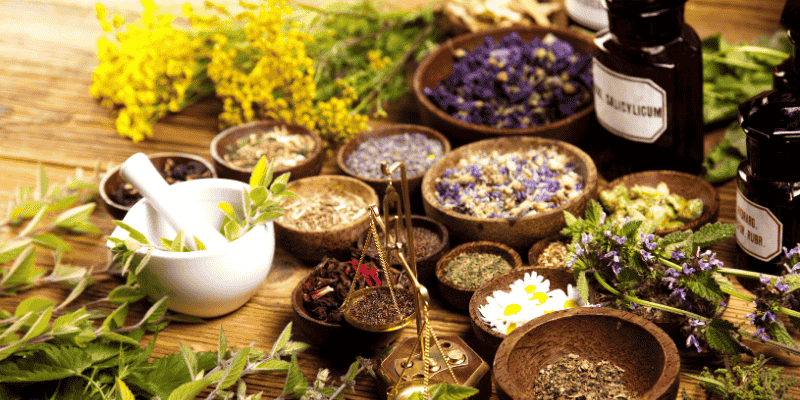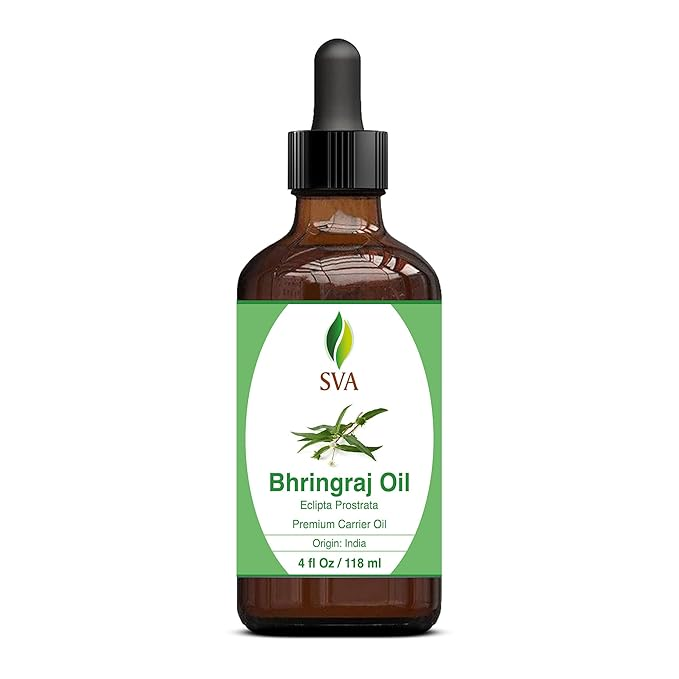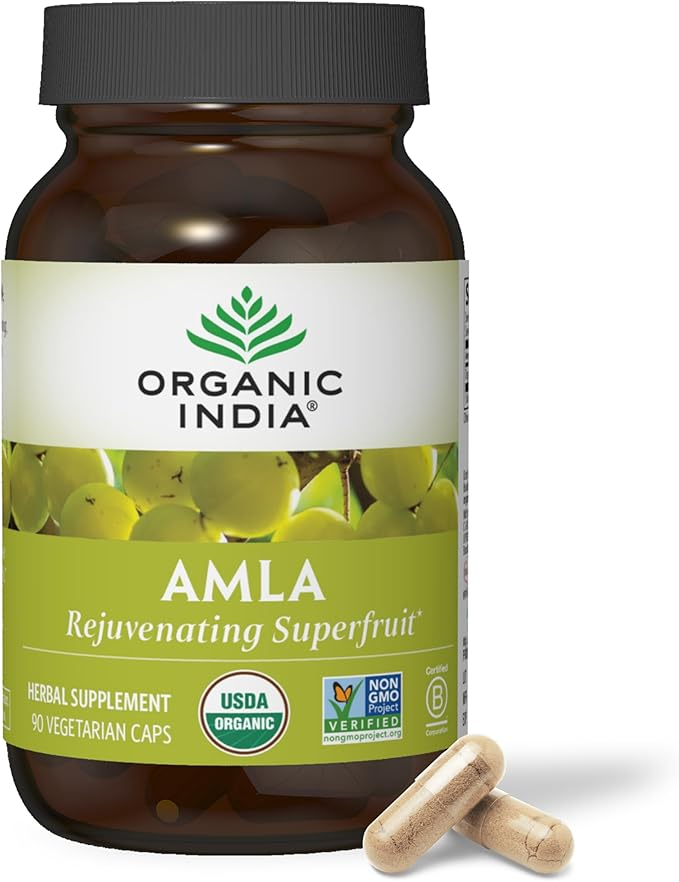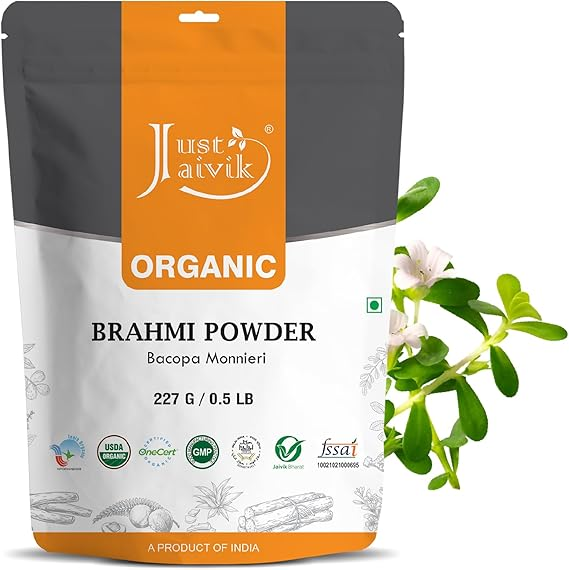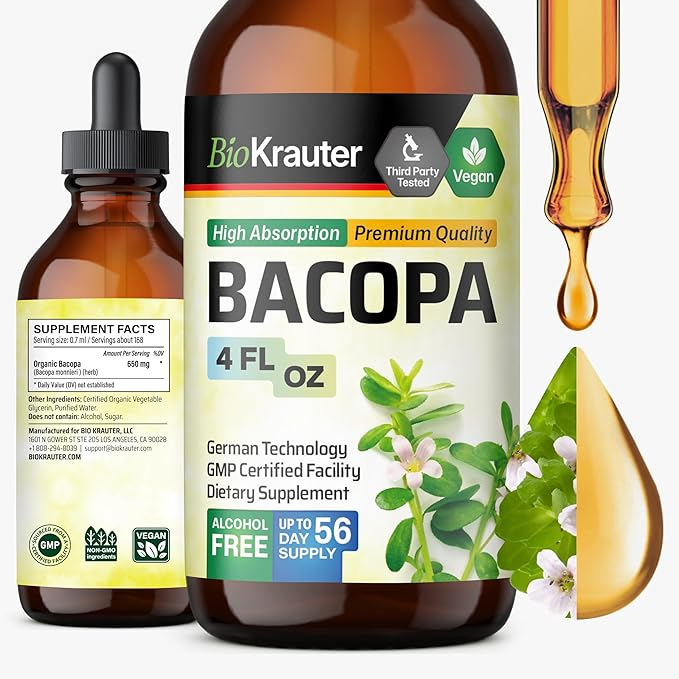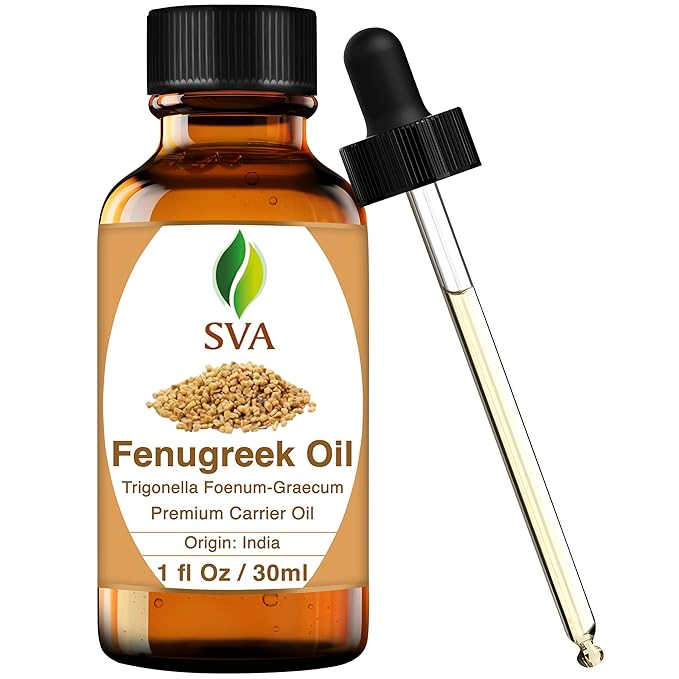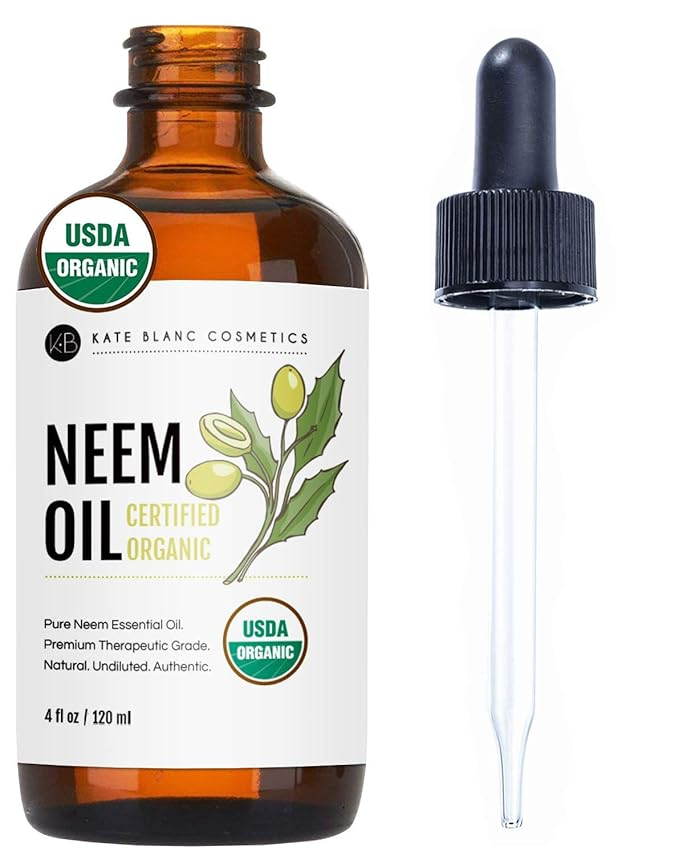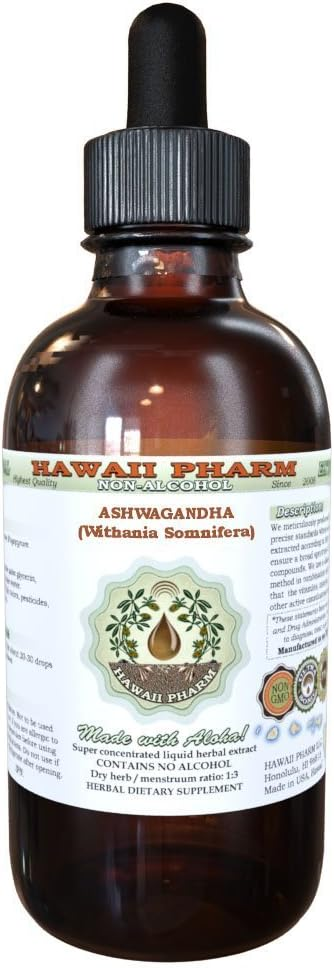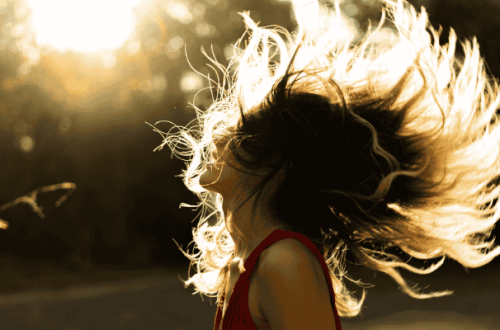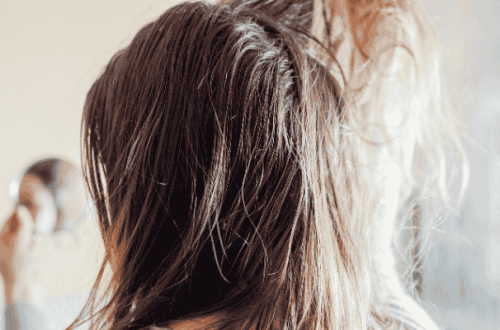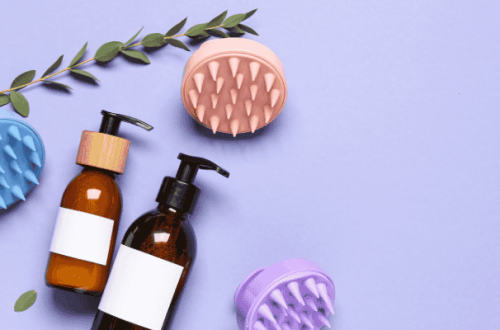Ayurveda, the ancient Indian system of health and wellness, treats hair as a direct reflection of your internal balance. In this tradition, healthy hair comes from a strong digestive system, a calm mind, and proper circulation of nutrients. Hair loss, dryness, thinning, or early greying are often signs of internal imbalance, especially in the three doshas: Vata, Pitta, and Kapha.
The good news? There are several Ayurvedic herbs that support hair growth naturally. These herbs have been trusted for centuries to nourish the scalp, strengthen roots, and support long-lasting hair health. In this guide, we’ll cover 6 well-known Ayurvedic herbs that are easy to find and use: Bhringraj, Amla, Brahmi, Fenugreek, Neem, and Ashwagandha.
Each herb includes dosage suggestions, simple usage instructions, and brief notes on traditional or scientific support. Whether you’re new to Ayurveda or already using natural methods, this guide will help you get better results with consistency.
🌿 1. Bhringraj (Eclipta alba)
Key Hair Benefits: Boosts hair growth, reduces hair fall, prevents premature greying
Dosage & Format:
- Oil: Massage 1–2 teaspoons of Bhringraj oil into the scalp, 2–3 times a week
- Powder (Internal): Take ¼ to ½ teaspoon daily with warm water or honey
Usage Instructions:
Use warm Bhringraj oil to gently massage the scalp at night. Leave it on overnight and wash your hair the next morning. For internal use, mix the powder in water, ghee, or milk. Start with a small dose and increase slowly, only under expert guidance.
Evidence or Tradition Note:
Bhringraj is known as the “King of Herbs” for hair. In Ayurveda, it is a major remedy for hair problems. A study in Pharmacognosy Research showed that Eclipta alba helped stimulate hair growth in mice when used in oil form. It supports hair follicle activity and promotes faster regrowth.
Bhringraj Oil is used for hair and scalp massage. Warm the oil and apply on the hair and scalp. Wrap a towel or shower cap for deep penetration. You can also use it by mixing a few drops of Bhringraj oil with your shampoo, conditioner, and mask for hair care.
2. Amla (Indian Gooseberry)
Key Hair Benefits: Strengthens hair, delays greying, adds shine, boosts natural volume
Dosage & Format:
- Oil: Apply Amla oil 2–3 times a week
- Powder (Oral): Take about 500 mg to 1 gram per day
- Mask: Mix powder with yogurt or aloe vera for a thick paste
Usage Instructions:
For oil use, warm Amla oil and apply it to the scalp. Massage for 10–15 minutes and leave it for at least an hour or overnight. For masks, mix Amla powder with water or curd, apply for 30–45 minutes, then wash off with a gentle shampoo. You can also consume Amla in juice or capsule form.
Evidence or Tradition Note:
Amla is a top Rasayana (rejuvenator) herb in Ayurveda. It contains high levels of Vitamin C and antioxidants. Traditional texts praise it for supporting healthy hair from within. A 2012 study published in the Journal of Ethnopharmacology confirmed its strong antioxidant effects that are beneficial for hair and skin.
Organic India Amla contains phytochemicals and antioxidants, aiding in the detoxification process by fighting free radicals and supporting longevity.
3. Brahmi (Bacopa monnieri)
Key Hair Benefits: Calms the mind, helps reduce stress-induced hair fall, supports healthy sleep patterns
Dosage & Format:
- Oil: Massage Brahmi oil 2× per week
- Powder: Take 5 grams/day mixed in water or milk
Usage Instructions:
Apply Brahmi oil to the scalp before bed and massage gently to relax the scalp and mind. You can leave it overnight and wash in the morning. For internal use, take Brahmi powder with warm milk or honey. Start with a low amount and consult a practitioner for regular use.
Evidence or Tradition Note:
Brahmi is used in Ayurveda to improve memory, reduce mental fatigue, and manage anxiety. These effects can help reduce hair fall linked to stress. A clinical study published in Evidence-Based Complementary and Alternative Medicine showed that Bacopa monnieri helps reduce anxiety and improve brain function.
Brahmi powder can strengthen hair, reduce dandruff, and promote a healthy scalp.
BioKrauter bacopa supplement, made from Bacopa monnieri (commonly known as bacoba monnieri herb), support hair health.
4. Fenugreek (Methi)
Key Hair Benefits: Improves scalp moisture, prevents dandruff, adds volume and shine
Dosage & Format:
- Paste: Use 2 tablespoons of soaked seeds ground into a paste, apply 2×/week
- Powder (Internal): ½ tsp daily with warm water
Usage Instructions:
Soak fenugreek seeds overnight. Blend them into a smooth paste and apply to your scalp and hair. Let it sit for 30–45 minutes, then wash with a mild cleanser. To use internally, take the powder with warm water or add to food. Do not exceed the suggested amounts, as it may affect blood sugar.
Evidence or Tradition Note:
Fenugreek is commonly used in Indian kitchens and hair care rituals. It contains protein and plant compounds that help with hair thinning and dandruff. A 2016 review in the International Journal of Trichology highlights its potential role in scalp health and hair regrowth.
Fenugreek oil is cold pressed and is used for hair and scalp massage. Simply mix a few drops of Fenugreek oil with your shampoo, conditioner, and mask for hair care. You can warm the oil and apply it to the hair and scalp. Wrap a towel or shower cap for deep penetration.
5. Neem (Azadirachta indica)
Key Hair Benefits: Treats dandruff, soothes itchy scalp, promotes scalp cleanliness
Dosage & Format:
- Oil: Infused neem oil applied once a week
- Rinse: Boiled neem water as a final rinse once weekly
Usage Instructions:
To make a neem rinse, boil a handful of neem leaves in water, cool the liquid, and pour it over your hair after shampooing. You can also mix neem oil with coconut or sesame oil for scalp massage. Avoid direct application of neem oil on sensitive skin without dilution.
Evidence or Tradition Note:
Neem is known for its cleansing and antimicrobial action. It is often used in scalp conditions like dandruff, psoriasis, or fungal infections. A study published in Ancient Science of Life found that neem oil has significant anti-inflammatory and antifungal activity.
Neem oil's is rich in essential fatty acids and Vitamin E; it's suitable for all skin types nourishes your skin, hair and nail.
6. Ashwagandha (Withania somnifera)
Key Hair Benefits: Manages stress, supports hormone balance, improves scalp circulation
Dosage & Format:
- Powder (Internal): 3–6 grams/day with warm milk or ghee
- Scalp Mask: Mix with aloe vera gel 2×/week
Usage Instructions:
For scalp use, make a paste of Ashwagandha powder and aloe vera gel. Apply to the scalp for 30 minutes, then rinse. For internal use, take the powder with milk. It may help with stress-related hair thinning. Always consult a healthcare expert for regular internal use.
Evidence or Tradition Note:
Ashwagandha is one of the most important adaptogens in Ayurveda. It helps the body respond to physical and mental stress, both of which affect hair. A 2021 study in Journal of Ethnopharmacology found Ashwagandha helpful in lowering cortisol levels and improving overall well-being.
Crude Ashwagandha root extract of first cold extraction! Ashwagandha extract contains ONLY natural ingredients! Super concentrated Ashwagandha root Glycerin based liquid extract: dry material / solvents ratio is 1:3!
DIY Herbal Hair Recipes
1. Amla-Bhringraj Herbal Oil
Ingredients:
- 2 tbsp Amla oil
- 2 tbsp Bhringraj oil
Instructions:
Mix both oils in a bowl and warm gently. Massage into the scalp for 10–15 minutes using circular motions. Leave it overnight and wash with a mild shampoo. Use this twice a week for stronger roots and natural shine.
2. Brahmi + Fenugreek + Amla Mask
Ingredients:
- 1 tsp Brahmi powder
- 1 tsp Amla powder
- 2 tbsp Fenugreek paste (soaked + ground)
- 2 tbsp yogurt or aloe vera
Instructions:
Mix all ingredients to form a thick paste. Apply evenly to scalp and hair. Leave on for 30–45 minutes. Rinse with lukewarm water and a mild cleanser. Use once weekly to control dandruff and support thicker hair.
📌 Note: Always do a patch test before trying a new recipe. If you’re pregnant, nursing, or on medication, speak to a doctor before internal use.
🧠 Hair Types, Doshas & Safety Notes (Approx. 150 words)
In Ayurveda, different herbs are better suited for different scalp types:
- Vata (Dry scalp): Use Bhringraj, Amla oil, Brahmi
- Pitta (Inflammation or early greying): Use Amla, Brahmi, Ashwagandha
- Kapha (Oily scalp, dandruff): Use Neem, Fenugreek, Bhringraj
If you’re new to Ayurvedic herbs, start slow. Avoid using too many at once. Stick to 1–2 herbs and note how your scalp and body respond.
Patch Test: Always test a small amount of any herb or oil on your forearm or behind the ear. Wait 24 hours to check for irritation.
Internal Use Caution: Some herbs like Ashwagandha, Brahmi, or Bhringraj can interact with medicines. If you are pregnant, breastfeeding, or taking medication, talk to your doctor before consuming herbs internally.
Conclusion
Using Ayurvedic herbs for hair growth is safe and effective when done consistently. Combine topical treatments like oils and masks with internal support like herbal powders or teas. Track your results for at least 3 to 4 months to notice visible improvements. Nature takes time, but it works.
